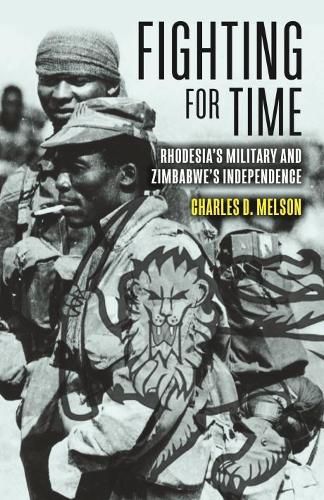Readings Newsletter
Become a Readings Member to make your shopping experience even easier.
Sign in or sign up for free!
You’re not far away from qualifying for FREE standard shipping within Australia
You’ve qualified for FREE standard shipping within Australia
The cart is loading…






An academic discussion of the lessons to be learnt from the series of conflicts involved Rhodesian, South Africa and Portugal in the 1960s and 1970s. From the 1960s through 1970s there were a series of conflicts in Africa involving Rhodesia, South Africa, and Portugal in conflict with the so-called Frontline States. There was an international element with the Cold War and saw American interest at the diplomatic, economic, and social level. In the post-Vietnam period there was participation by individual American soldiers and politicians. Most of what has been published to date about this conflict has been fashionable journalism, narrow unit histories, or personal accounts that lack balance or insights beyond the level of experience. In part, this is because Rhodesian senior leaders did not leave memoirs or analysis and because there was a belief that the Rhodesian diplomatic and political situation was too unique to learn from. This work, drawing on a wealth of primary sources, examines the transition of the Rhodesian armed services from a general-purpose force to a special operations force conducting intelligence-driven operations, and identifies the lessons that can be learnt from the study of this low-intensity conflict at the level of “tactics, techniques, and procedures. Charles Melson offers a detailed examination of the military response to the emerging revolutionary threat, and the evolution of general and special-purpose units. He addresses the critical use of airpower as a force multiplier supporting civil, police, and army efforts ranging from internal security and border control to internal and external combat operations; the requirement for innovative units and full-time joint command structures; and the escalation of cross-border attacks and unconventional responses as the conflict evolved. AUTHOR: Charles D. Chuck Melson served as the Chief Historian for the U.S. Marine Corps, at Headquarters, U.S. Marine Corps in Washington, DC, and the Marine Corps University in Quantico, Virginia. His military service included 25 years as a U.S. Marine. For some 23 years he wrote, co-authored, or edited official publications and series. Chuck was also a joint historian with the U.S. Central Command and U.S. Special Operations Command. He received the General Edwin Simmons-Henry Shaw Award for public historians, the General Leonard Chapman Medal for professional military educators, and the commemorative Rhodesian Independence Medal.
$9.00 standard shipping within Australia
FREE standard shipping within Australia for orders over $100.00
Express & International shipping calculated at checkout
An academic discussion of the lessons to be learnt from the series of conflicts involved Rhodesian, South Africa and Portugal in the 1960s and 1970s. From the 1960s through 1970s there were a series of conflicts in Africa involving Rhodesia, South Africa, and Portugal in conflict with the so-called Frontline States. There was an international element with the Cold War and saw American interest at the diplomatic, economic, and social level. In the post-Vietnam period there was participation by individual American soldiers and politicians. Most of what has been published to date about this conflict has been fashionable journalism, narrow unit histories, or personal accounts that lack balance or insights beyond the level of experience. In part, this is because Rhodesian senior leaders did not leave memoirs or analysis and because there was a belief that the Rhodesian diplomatic and political situation was too unique to learn from. This work, drawing on a wealth of primary sources, examines the transition of the Rhodesian armed services from a general-purpose force to a special operations force conducting intelligence-driven operations, and identifies the lessons that can be learnt from the study of this low-intensity conflict at the level of “tactics, techniques, and procedures. Charles Melson offers a detailed examination of the military response to the emerging revolutionary threat, and the evolution of general and special-purpose units. He addresses the critical use of airpower as a force multiplier supporting civil, police, and army efforts ranging from internal security and border control to internal and external combat operations; the requirement for innovative units and full-time joint command structures; and the escalation of cross-border attacks and unconventional responses as the conflict evolved. AUTHOR: Charles D. Chuck Melson served as the Chief Historian for the U.S. Marine Corps, at Headquarters, U.S. Marine Corps in Washington, DC, and the Marine Corps University in Quantico, Virginia. His military service included 25 years as a U.S. Marine. For some 23 years he wrote, co-authored, or edited official publications and series. Chuck was also a joint historian with the U.S. Central Command and U.S. Special Operations Command. He received the General Edwin Simmons-Henry Shaw Award for public historians, the General Leonard Chapman Medal for professional military educators, and the commemorative Rhodesian Independence Medal.